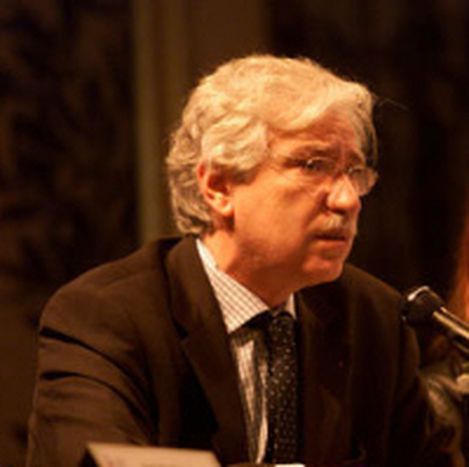
The threatening voice of Iran
Published on
Translation by:
 catherine wilson
catherine wilson
Does the West need to resort to force to frustrate Tehran’s nuclear ambitions? Here’s what French MEP and member of the delegation for relations with Israel, Pierre Schapira, has to say on the matter.
Crises in the Middle East appear to be repeating themselves – first it was Iraq and weapons of mass destruction, now it’s a nuclear weapons programme in Iran. This time – acting as if history has taught him nothing – it is again George Bush threatening world peace by trying to engage the international community in a fight against the “axis of evil.”
The calculation of force
To decide whether we need to use force against Iran, you have to simply look at what the outcome would be, and then weigh up what there is to gain from this kind of intervention against what we might lose. Those advocating military strikes want to destroy Iran’s nuclear capacity. Seymour Hersh’s article in the New Yorker, which started the debate, already noted that Iran is already prepared for air strikes. Even if we did manage to destroy the physical facilities, a strike would never be able to destroy the knowledge contained in the heads of the scientists.
The only feasible outcome of a military strike would be to delay Tehran’s nuclear program. Meanwhile, the people of Iran believe it is their sovereign right to develop nuclear technology; it is a question of national security in the face of Israel, the only nuclear power in the Middle East. According to Azadeh Kian-Thiebaut, a researcher at the National Centre for Scientific Research (CNRS) in Paris, nuclear enrichment has become the latest watchword for Iranian nationalism. Destroying part of Iran’s nuclear program would only inflame these patriotic sentiments and reinforce in Iranian minds the need for their country to acquire nuclear weapons to protect themselves against such attacks.
Peace bombs
Ultimately, all we can hope for is that Iran’s nuclear capacity be put in the hands of regime which is responsible, pacifist and progressive, and that doesn’t hate either the West or Israel. The question is: how do we get such a regime in place? The only way that the existing powers can be genuinely overthrown is from within. Outside military help will not help, not least because any Western air strikes, and their inevitable civilian casualties, risk reinforcing a sense of Iranian solidarity against their aggressor. What’s more, it is unlikely that the political opposition in Iran want to get into power with the help of western military forces, considering the calamity in Iraq.
While it is hard to be sure how much we would gain from using force against the Iranians, it is all too easy to picture how they would react. The Islamic Republic is renowned for its ability to cause trouble and, through its militant networks, could unleash more violence in sensitive parts of the region. It could also launch missile strikes against Israel and the Gulf kingdoms. What’s more, Iran has a capacity to unleash terrorist actions here in the West. This would mean, as well as Osama bin Laden’s Sunni terrorism, we would have that of the Iranian Shiites. A military strike against Iran would aggravate the tensions between the West and the Muslim world and risks making the conflict degenerate into a world wide conflict.
Actors in search of a method
In light of all this, I believe that – at this stage – the threat of western military intervention is an undesirable one; it would radicalise the people of Iran. So what should we do, faced with provocations from President Ahmadinejad and considering the danger of a nuclear attack being launched against Israel? One answer would be to put all our efforts into establishing a more peaceful relationship between Iran and the West, in particular the United States. By taking Iran off the “axis of evil” list, an inventory of every rogue state around the world, and lifting Iranian economic sanctions with a view to re-establishing a real dialogue among civilisations.
Washington and Brussels could denounce Mahmoud Ahmadinejad’s irresponsible behaviour but also ease tensions. There is still time for Western diplomacy to achieve such openness, since there is no immediate danger of an Iranian nuclear attack; it is unlikely that Iran is unlikely to have such a capacity before 2009 at the earliest. For the time being, we should be careful not to go rushing up the ‘ladder of sanctions’ too quickly, trapping ourselves in a game of brinkmanship from which it would be impossible to extricate ourselves.
Translated from La voix dangereuse de l'Iran


